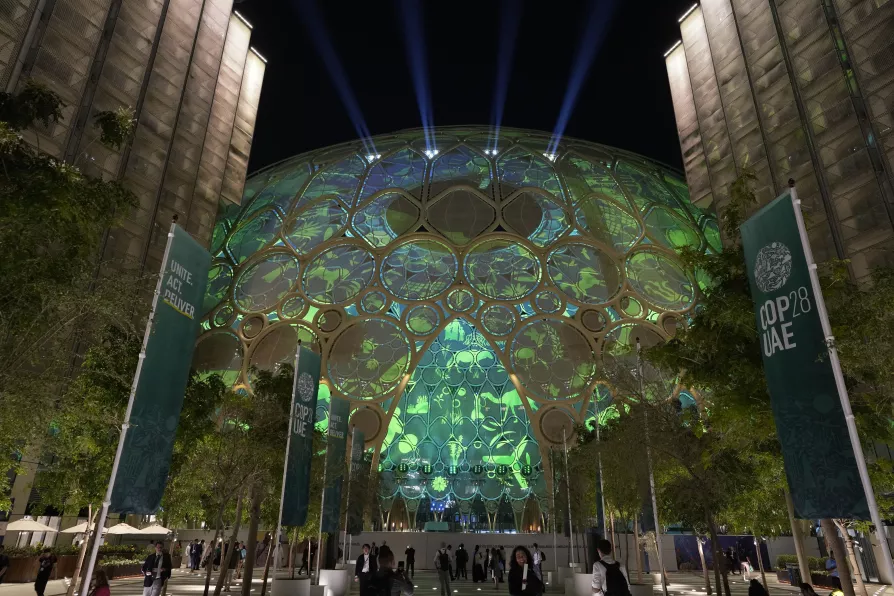As tens of thousands return to the streets for the first national Palestine march of 2026, this movement refuses to be sidelined or silenced, says PETER LEARY

 Lights shine from Al Wasl Dome at Expo City at the Cop28 UN Climate Summit
Lights shine from Al Wasl Dome at Expo City at the Cop28 UN Climate Summit
WATCHING the glitzy opening of the Cop28 meeting in Dubai, one could not help but be struck, whatever it may have looked like when the first Conference of the Parties took place in 1995, by how performative it has all become.
It is surely part of the performance that the current meeting is being held in a petro-state like the United Arab Emirates and that its chair is the CEO of that country’s state-owned oil company; a veneer of inclusivity to suggest that we are “all in this together” — while BBC reports suggest that the host country intends to use the conference to make oil and gas deals.
King Charles delivers one of the opening speeches, while the Prime Minister flies to Dubai fresh from having, in the pursuit of votes at the next general election, scaled back his government’s plans on reaching net zero. The self-congratulatory applause on the first day at last to put some figures on funding loss and damage reparations — a principle agreed a year ago on which nothing has happened since.
As the great and the good rub shoulders with each other and with the fossil fuel companies who have become an increasing presence at Cop meetings, it’s hard not to wonder who speaks for the “little people” — who speaks for us?
It’s an important question, because those who suffer most from environmental destruction and climate change are not the petro-states, the fossil fuel companies or the monarchs — those who have most, but, both between countries and within countries, it is those who have least who bear, disproportionately, the effects and the burden of unfolding climate disaster.
Climate change and social inequality cannot be separated. Globally, nationally and individually it is those in the in the richest parts of the world who historically have produced and currently contribute the highest levels of greenhouse gas emissions, but are cushioned from their effects, enabling them to continue with “business as usual” while meeting once a year to wring their hands and quietly sabotage any genuine attempt at meaningful action on climate change.
A report, the result of work by Oxfam, the Stockholm Institute together with the Guardian newspaper and published last month, showed that the richest 1 per cent of humanity accounts for more carbon emissions than the poorest 66 per cent.
A group of just 77 million people paid over £112,500 a year were responsible for 16 per cent of all CO2 emissions in 2019 — enough to cause 1.3 million deaths from the effects of heat, using the US Environment Protection Agency “mortality cost” of 226 excess deaths for every million tonnes of carbon.
The carbon footprint of the richest 0.1 per cent is 77 per cent higher than an upper level required to achieve the 1.5°C limit on post-industrial global warming agreed in the Paris Accord, with significant contributions from the use of super-yachts, private jets, mansions and space flights.

The Communist Party of Britain’s Congress last month debated a resolution on ending opposition to all nuclear power in light of technological advances and the climate crisis. RICHARD HEBBERT explains why

From summit to summit, imperialist companies and governments cut, delay or water down their commitments, warn the Communist Parties of Britain, France, Portugal and Spain and the Workers Party of Belgium in a joint statement on Cop30












